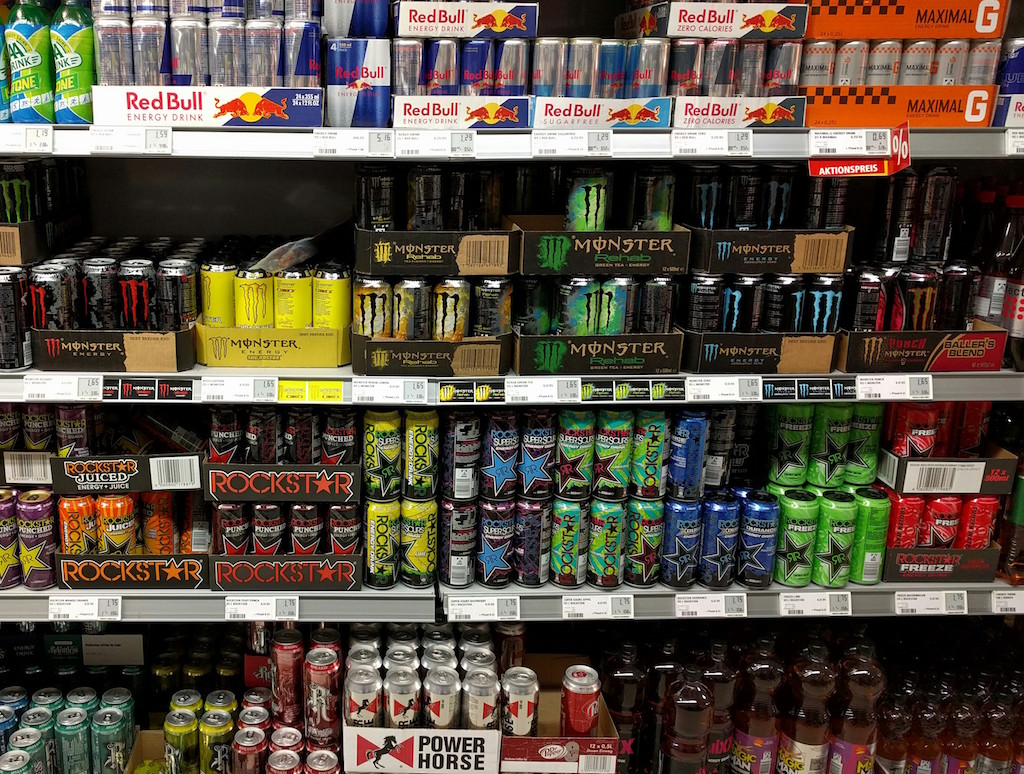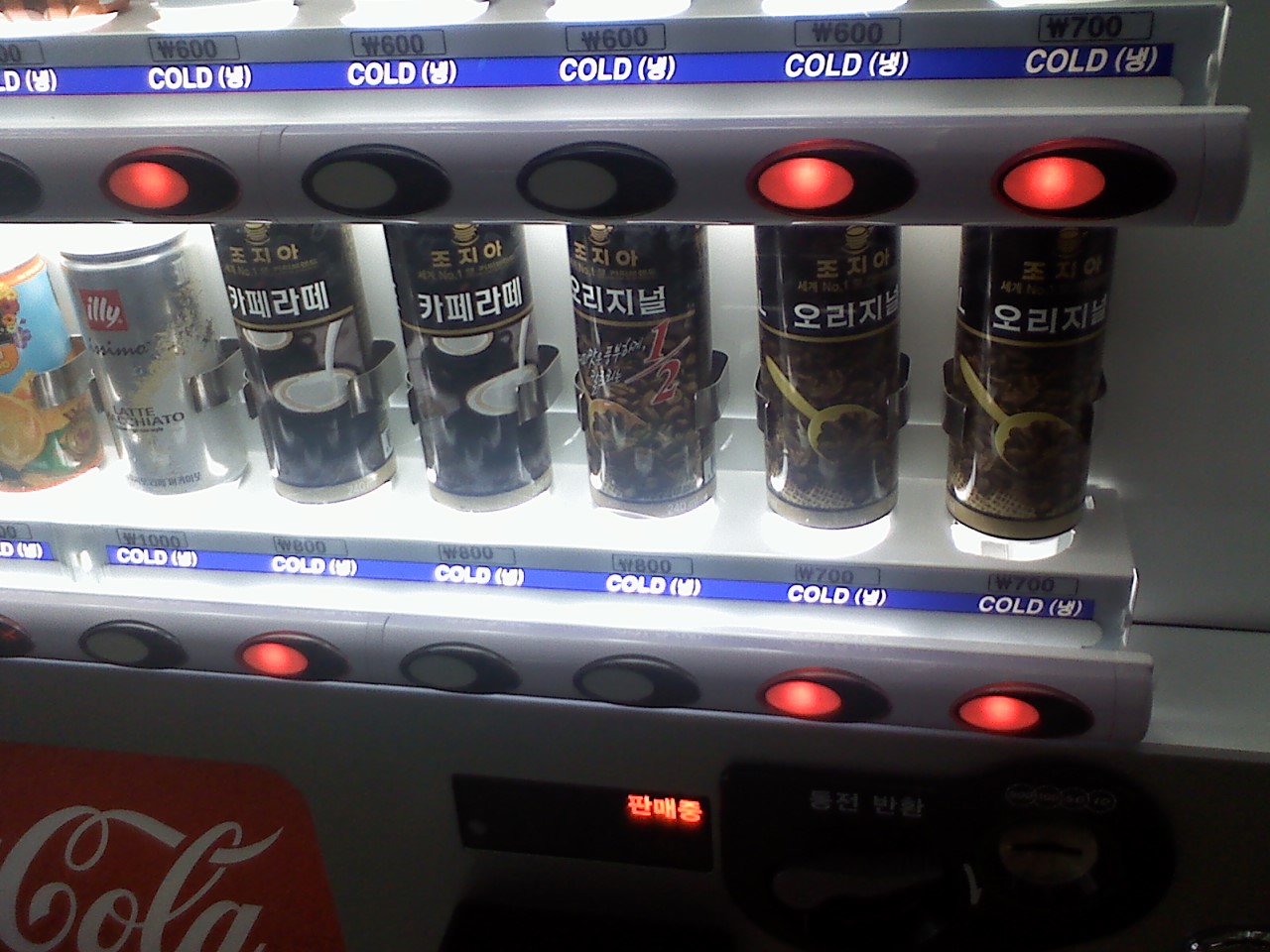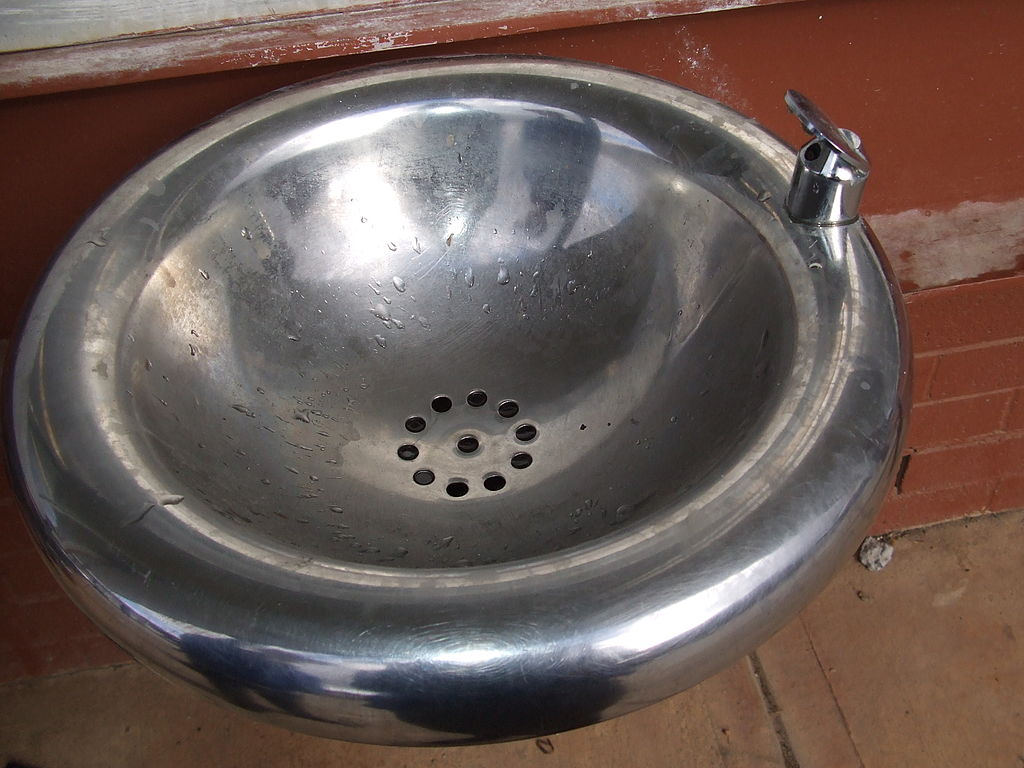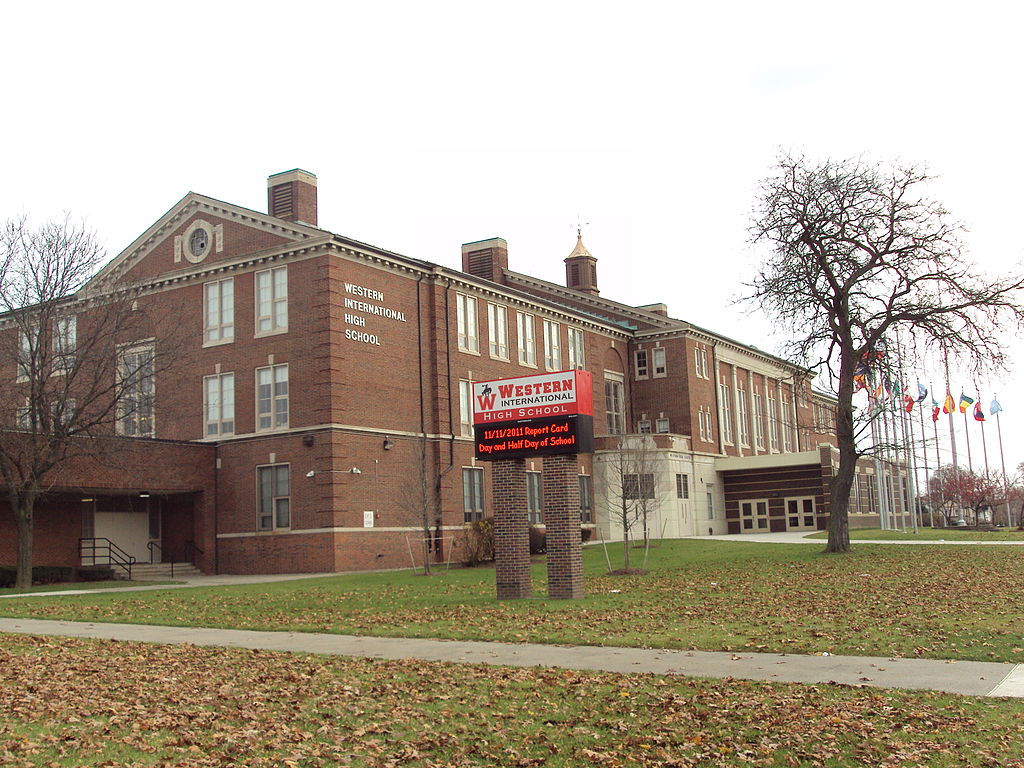England plans to make energy drinks against the law for kids, Korea stops selling coffee in its schools, and in Detroit, school drinking fountains have been turned off because the water is dangerous.
England
In England, the government plans to make it against the law to sell “energy drinks” to children.
Energy drinks are drinks with lots of sugar and caffeine. Caffeine is a chemical that is found in drinks like coffee and tea. It is also in some soft drinks, such as Coca-Cola. Caffeine can help someone feel more awake or excited.

Most supermarkets in England already do not sell the drinks to children under 16.
(Source: AlienFood, from Wikimedia Commons.)
By combining sugar and caffeine, energy drinks can give a short, strong feeling of excitement. But many teachers in England say the drinks are causing kids to behave badly in class.
The government is worried about the effects the caffeine and sugar are having on children. The caffeine can cause problems like headaches, stomach aches, and sleep problems. The sugar damages teeth, and is causing many children to gain too much weight.
Most large supermarkets in England already do not sell energy drinks to children under 16. The new plan would make it against the law for anyone to sell the drinks to children.
The government is asking people to share their ideas about the plan. The main question the government has is whether the age limit should be 16 or 18.
London, England
Korea
In South Korea, energy drinks are already not allowed in schools. But until recently, most schools still had machines that sold coffee, often in cans.

Machines like these can’t sell coffee in Korean schools starting in September.
(Source: TFurban, via Flickr.com.)
The coffee was meant for teachers and other adults who worked in the schools. But students were also buying the coffee. Now South Korea has made a rule that says that no coffee can be sold in schools at all – not even to teachers. The rule starts September 14.
Seoul, South Korea
Detroit, Michigan
Water is usually the safest and best liquid for people to drink. But in Detroit, the leader of the public schools, Nikolai P. Vitti, has shut off the water to the drinking fountains in all of the schools. That’s because in many of the schools, tests of the water have shown that it is unsafe to drink.

Tests show that in many of Detroit’s schools, the water is not safe to drink.
(Source: Dfrg.msc, from Wikimedia Commons.)
The city of Detroit has gone through very hard times in recent years. There were not many jobs. The city government ran out of money. Many people left the city to find better places to live.
Many of the schools in Detroit are old and have not been kept in good shape. No one knows exactly what is causing the water problems, but many people think it is because of the old water pipes in the school buildings.

Many schools in Detroit are old and need to be fixed.
The school system does not have the money to pay for the repairs.
(Source: Notorious4life, via Wikimedia Commons.)
The school system does not have the money to fix the problem – it already owes about $3.5 billion and the rules do not allow it to borrow more money easily. One report says it could cost as much as $500 million to fix all of the problems in the Detroit public schools.
So for now, all drinking water for the students will have to come from bottled water or water coolers.
Detroit, Michigan
